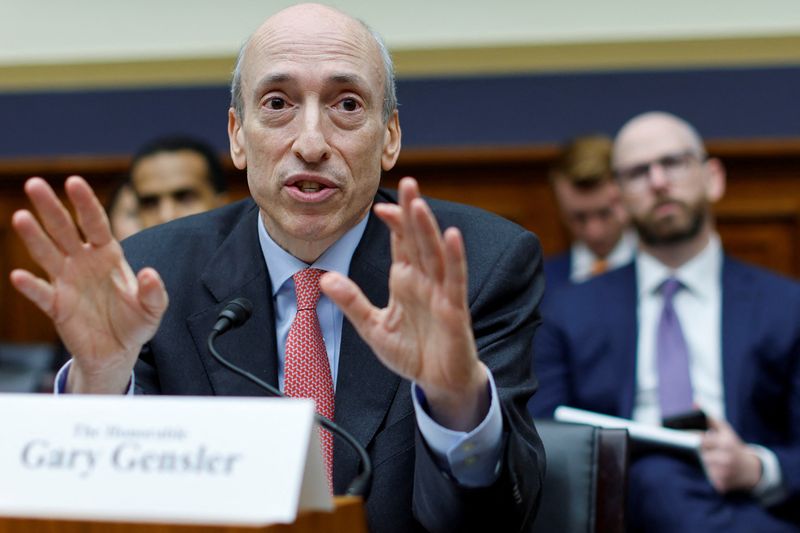
© Reuters. U.S. Securities and Exchange Commission (SEC) Chairman Gary Gensler testifies before a House Financial Services Committee oversight hearing on Capitol Hill in Washington, U.S. September 27, 2023. REUTERS/Jonathan Ernst
(Reuters) – A pending law in California that would require companies to make climate-related disclosures could affect how federal regulators consider the costs of their own forthcoming climate regulations, Wall Street’s top regulator told lawmakers on Wednesday.
U.S. Securities and Exchange Commission (SEC) Chair Gary Gensler’s testimony during a house oversight hearing highlighted the potential for the California law to support the agency’s efforts to regulate corporate climate disclosures, which face stiff opposition from industrial lobbies.
“If it were signed into law, as I understand it, that would require companies a certain size to report their climate risk,” Gensler said in testimony before the House of Representatives.
“That may change the baseline. If those companies were reporting to California, then it would be in essence less costly because they’d already be producing that information.”
California Governor Gavin Newsom said earlier this month that he intended to sign legislation requiring large companies to disclose their carbon footprints.
The bill tackles one of the thorniest issues in climate regulation by asking companies to measure and report a complex category of indirect emissions linked to their supply chains and end-users, known as Scope 3.
The SEC last year proposed long-awaited regulations that would likewise require publicly traded companies to notify investors of the companies’ emissions, as well as climate-related spending and risks, amid a wider global effort to address fossil fuel-driven climate change by requiring companies to disclose their emissions and risks.
Among a barrage of objections, industry has complained the SEC has underestimated the cost of complying with the proposed rule.
Companies and industry groups have complained that the proposed rule would require them to develop new systems for accounting for emissions, not only by themselves but by their suppliers, driving up the costs of complying with the law for industries as varied as agriculture, transportation and banking.








